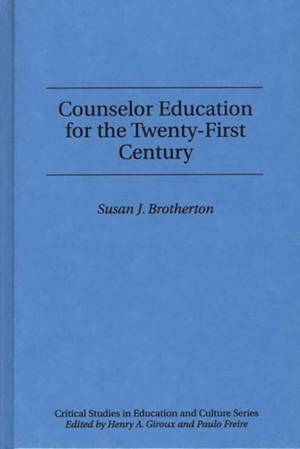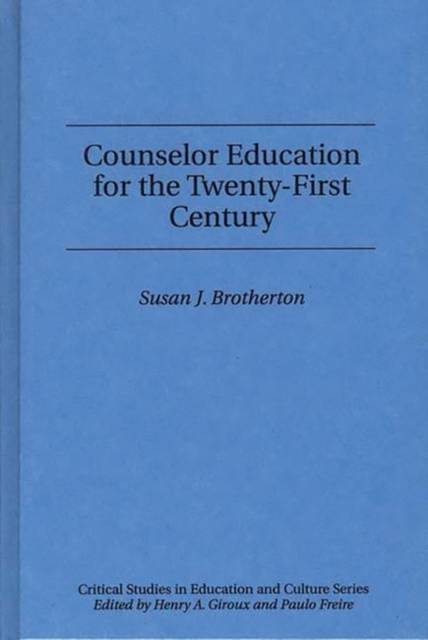
- Afhalen na 1 uur in een winkel met voorraad
- Gratis thuislevering in België vanaf € 30
- Ruim aanbod met 7 miljoen producten
- Afhalen na 1 uur in een winkel met voorraad
- Gratis thuislevering in België vanaf € 30
- Ruim aanbod met 7 miljoen producten
Zoeken
Omschrijving
This book examines the need for the development of an expanded theoretical foundation of counselor education which will serve to better prepare school counselors for effectively meeting student counseling needs in the 21st century. This process includes a rethinking of meanings and outcomes associated with counselor education, the counseling process, the role of the school counselor, and the political implications embedded in educational counseling. The expanded theoretical framework includes questioning the applicability and relevance-to-practice of current counselor education, a critical analysis of psychological philosophy, investigating the principles behind critical theory, feminist theory, and postmodernism, unveiling exclusionary aspects of current counseling theory and practice. Brotherton calls for a pedagogy of inclusion and fluidity in counselor education that will be capable of handling the issues surrounding diversity, multiplicity, and exclusion that are challenging American schools.
Specificaties
Betrokkenen
- Auteur(s):
- Uitgeverij:
Inhoud
- Aantal bladzijden:
- 152
- Taal:
- Engels
- Reeks:
Eigenschappen
- Productcode (EAN):
- 9780897894715
- Verschijningsdatum:
- 30/06/1996
- Uitvoering:
- Hardcover
- Formaat:
- Genaaid
- Afmetingen:
- 156 mm x 234 mm
- Gewicht:
- 390 g

Alleen bij Standaard Boekhandel
+ 322 punten op je klantenkaart van Standaard Boekhandel
Beoordelingen
We publiceren alleen reviews die voldoen aan de voorwaarden voor reviews. Bekijk onze voorwaarden voor reviews.











